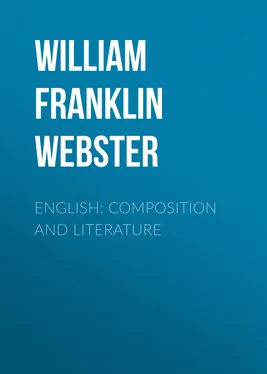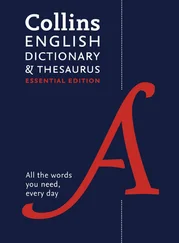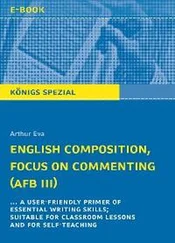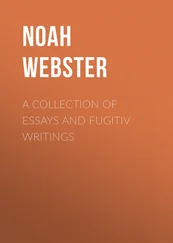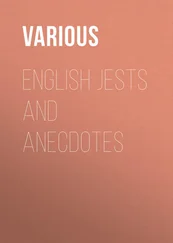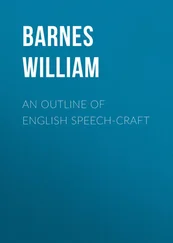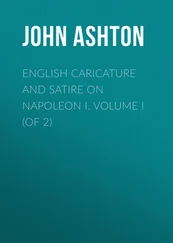William Franklin Webster - English - Composition and Literature
Здесь есть возможность читать онлайн «William Franklin Webster - English - Composition and Literature» — ознакомительный отрывок электронной книги совершенно бесплатно, а после прочтения отрывка купить полную версию. В некоторых случаях можно слушать аудио, скачать через торрент в формате fb2 и присутствует краткое содержание. Жанр: psy_personal, foreign_language, foreign_edu, foreign_antique, на английском языке. Описание произведения, (предисловие) а так же отзывы посетителей доступны на портале библиотеки ЛибКат.
- Название:English: Composition and Literature
- Автор:
- Жанр:
- Год:неизвестен
- ISBN:нет данных
- Рейтинг книги:3 / 5. Голосов: 1
-
Избранное:Добавить в избранное
- Отзывы:
-
Ваша оценка:
- 60
- 1
- 2
- 3
- 4
- 5
English: Composition and Literature: краткое содержание, описание и аннотация
Предлагаем к чтению аннотацию, описание, краткое содержание или предисловие (зависит от того, что написал сам автор книги «English: Composition and Literature»). Если вы не нашли необходимую информацию о книге — напишите в комментариях, мы постараемся отыскать её.
English: Composition and Literature — читать онлайн ознакомительный отрывок
Ниже представлен текст книги, разбитый по страницам. Система сохранения места последней прочитанной страницы, позволяет с удобством читать онлайн бесплатно книгу «English: Composition and Literature», без необходимости каждый раз заново искать на чём Вы остановились. Поставьте закладку, и сможете в любой момент перейти на страницу, на которой закончили чтение.
Интервал:
Закладка:
What to include.The selection of the main incident will guide in determining what to include; for every detail must be included that is necessary to make the main incident possible. A young pupil wrote of a party in the woods. The girls had found pleasant seats in a car and were chatting about their friends, when they felt a sudden lurch, and soon one of the party was besmeared by slippery, sticky whites of eggs. Now, if eggs were in the habit of clinging to the roofs of cars and breaking at unfortunate moments, there would be no need of any explanation; but as the cook forgot to boil the eggs and the girl had put them up into the rack herself, some of this should have been told. Enough at least should be told to make the main incident a possibility. Stories are full of surprises, but they can be understood easily from the preceding incidents; or else the new element is one that happens frequently, and of itself is nothing new. In the paragraph from Stevenson, the entrance of the “prim, little old maid” is a surprise, but it is a very common thing for ladies to walk upon a public highway. Any surprise must be natural,—the result of causes at work in the story, or of circumstances which are always occurring and by themselves no surprises. If the story be a tangled web of incidents culminating in some horror, as the death of the beautiful young wife in Hawthorne’s “Birthmark,” all the events must be told that are necessary to carry the reader from the first time he beholds her beauty until he sees her again, her life ebbing away as the fairy hand fades from her cheek. In “Baa, Baa, Black Sheep” it would be impossible to pass directly from the sweet boy of the first chapter to the little liar of the last; something must be told of those miserable days that intervene, and their telling effect on the little fellow. So a reader could not harmonize his idea of old Scrooge gained in the first chapter with generous Mr. Scrooge of the last without the intermediate chapters. Keeping the main incident in mind, include all that is necessary to make it possible.
Consistency.This same rule more than any other will make a story consistent. If incidents are chosen with relation to the one main incident, they will all have a common quality; they can scarcely be inconsistent. It is much more essential that a story be consistent than that it be a fact. Indeed, facts are not necessary in stories, and they are dangerous. Ian Maclaren says that the only part of his stories that has been severely criticised is a drowning episode, which was a fact, and the only one he ever used. Yet to those who have read “The Bonnie Brier Bush,” the old doctor is as well known as any person who lives across the street; he is real to us, though he never lived. “Old Scrooge” and “Brom Bones” are better known than John Adams is. A good character or a good story need not be drawn from facts. Indeed, in literature as in actual life, facts are stubborn things, and will not accommodate themselves to new surroundings. Make the story consistent; be not too careful about the facts.
A story may be good and be entirely contrary to all known facts. “The Ugly Duckling” is as true as Fiske’s “History of the United States,” and every whit as consistent. “Alice in Wonderland” is an excellent story; yet it contains no facts. The introduction of a single fact would ruin the story; for between the realm of fact and the region of fancy is a great gulf fixed, and no man has successfully crossed it. Whatever conditions of life and action are assumed in one part of a story must be continued throughout. If walruses talk and hens are reasonable in one part of the story, to reduce them to every-day animals would be ruinous. Consistency, that the parts stand together, that the story seem probable,—this is more essential than facts. And to gain this consistency the surest rule is to test the material by its relation to the main incident.
The choice of the main incident, then, will determine to a great degree what to exclude and what to include; it will assist in ridding compositions of countless enumerations, aimless wanderings, and flat endings; it will help the writer to get started, and insure a stop when the story is told; and it will give to the story the quality most essential for its success, consistency.
An Actor as the Storyteller.There is yet another condition that enters into the selection of materials: it makes a difference who tells the story. If the story be told in the first person, that is, if one of the actors tell the story, he cannot be supposed to know all that the other persons do when out of sight and hearing, nor can he know what they think. To take an illustration from a pupil’s essay. A girl took her baby sister out upon the lake in a rowboat. A violent storm arose, lashing the lake into a fury. The oars were wrenched from her hands. Helpless on the water, how was she to be saved? Here the essayist recited an infinite amount of detail about the distress at home, giving the conversation and the actions. These things she could not have known in the character she had assumed at the beginning, that of the chief actor. All of that should have been excluded. When Stevenson tells of the fight in the round house, though he knew what those old salts were doing outside, matters of great interest to the reader, he does not let David say anything except what he could see or hear, and a very little of what he “learned afterwards.” Stevenson knew well who was telling the story; David is too good a story-teller to tell what he could not know. In the pupil’s essay and in “Kidnapped,” all such matters would have a direct bearing on the main incident; they could be included without destroying the unity of the story. But they cannot be included when the story is told by one of the actors.
The Omniscience of an Author.Many stories, probably most stories, are told in the third person. In this case the author assumes the position of an omniscient power who knows everything that is done, said, or thought by the characters in his story. Not only what happens in the next room, but what is thought at the other side of the world, is comprehended in his omniscience. This is the position assumed by Irving in “The Legend of Sleepy Hollow,” by Kipling in the series of stories included with “Wee Willie Winkie,” by Scott in “Marmion,” and by most great novelists. Omniscience is, however, a dangerous prerogative for a young person. The power is so great that the person who has but recently come into possession of it becomes dizzy with it and uncertain in his movements. A young person knows what he would do under certain conditions; but to be able to know what some other person would do and think under a certain set of circumstances requires a sure knowledge of character, and the capability of assuming entirely different and unaccustomed points of view. It is much safer for the beginner to take the point of view of one of the actors, and tell the story in the first person. Then when the grasp has become sure from this standpoint, he may assume the more difficult role of the omniscient third person.
To sum up what has been said about the selection of materials: only those materials should be admitted to a story which contribute to its main incident, which are consistent with one another, and which could have been known by the narrator.
The Climax.When the materials for a story have been selected, the next consideration is their arrangement. If the materials have been selected to contribute to the main incident and converge toward it, it will follow that the main incident will come last in the story; it will be the climax towards which the several parts of the story are directed. Moreover, it should be last, in order to retain the interest of the reader up to that time. This is in accordance with the demands of the second great principle of structure, Mass. An essay is well massed if the parts are so arranged that things of importance will arrest the attention. In literature to be read, to arrest the attention is almost equivalent to catching the eye. The positions that catch the eye, whether in sentence, paragraph, or essay, are the beginning and the end. Were it not for another element which enters into the calculation, these positions would be of nearly equal importance. Since, however, the mind retains the most vivid impression of the thing it received last, the impression of the end of the sentence, paragraph, or essay is stronger than the impression made by its beginning. The climax of a story should come at the end, both because it is the result of preceding incidents, and because by this position it receives the additional emphasis due to its position.
Читать дальшеИнтервал:
Закладка:
Похожие книги на «English: Composition and Literature»
Представляем Вашему вниманию похожие книги на «English: Composition and Literature» списком для выбора. Мы отобрали схожую по названию и смыслу литературу в надежде предоставить читателям больше вариантов отыскать новые, интересные, ещё непрочитанные произведения.
Обсуждение, отзывы о книге «English: Composition and Literature» и просто собственные мнения читателей. Оставьте ваши комментарии, напишите, что Вы думаете о произведении, его смысле или главных героях. Укажите что конкретно понравилось, а что нет, и почему Вы так считаете.
